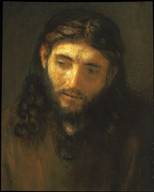 Why do so many clergy like trains - real and model? I have a model railway in our garage, and my father (not a clergyman) has a railway in his garden. I made a short film of it recently - combining my love of trains with with my favourite British light music:
Why do so many clergy like trains - real and model? I have a model railway in our garage, and my father (not a clergyman) has a railway in his garden. I made a short film of it recently - combining my love of trains with with my favourite British light music:My own theory is that railways are all about order and communication. For some clergy the stress of parish life, and the number of awkward people that one sometimes has to deal with, can be forgotten about in the ordered environment of a model railway. Here you are in complete control, with no-one to answer back or contradict. Yes, trains sometimes get derailed, but no-one gets hurt. Some model railway enthusiasts run their trains to a strict timetable - another layer of order and control. But running a railway can be a very social activity. In real life trains are passed from the control of one signalbox to another with great care. Nowadays this is all computerised, but it used to be by a series of bell codes and telephones.
Is there anything theological or biblical in all of this? I'm not sure, but maybe building and running a model railway reflects something of the creativeness of God, and his fatherly care.
Here is a link to a lovely BBC archive film that shows a rather eccentric elderly couple and a decidedly eccentric young curate expressing their love of trains - real and imaginary.
http://www.bbc.co.uk/archive/steamtrains/7308.shtml?all=2&id=7308
http://www.bbc.co.uk/archive/steamtrains/7308.shtml?all=2&id=7308
Is there anything theological or biblical in all of this? I'm not sure, but maybe building and running a model railway reflects something of the creativeness of God, and his fatherly care.
Railways are also about communication: taking people to their destination. They used to carry the news and the post. I haven't done a survey, but I think train-loving clergy tend to be found more in the evangelical wing of the church in which a high priority is put on taking the good news to new places.
I'm sure psychologists would have a lot to say about the fascination with railways, and I'd be interested to hear what they say. But for me, it's just something I've grown up with and embraced for myself - rather like my faith I suppose.

2 comments:
balenciaga triple s
adidas nmd r1
hogan outlet online
yeezy shoes
yeezys
lebron shoes
lebron 13
yeezy boost 350 v2
michael kors factory outlet
curry 6
replica gucci handbags t16 p8i73f1q65 high quality replica bags s96 c7t88f7x74 replica bags buy online a31 g1b08d3f65
Post a Comment